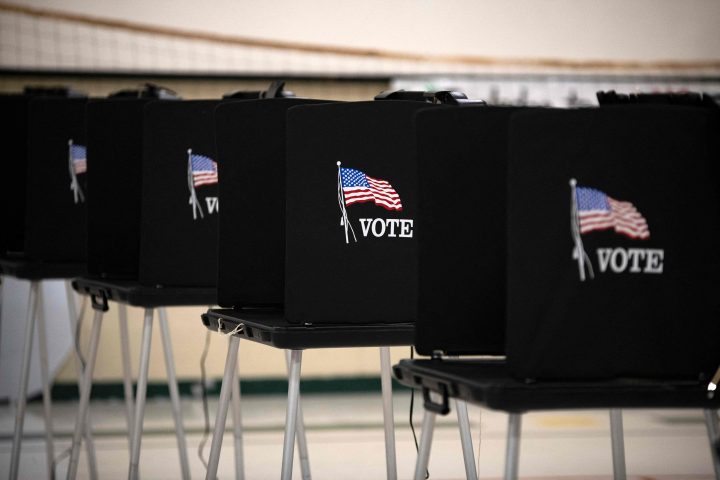
Following Election Day, the economic story so far

With ballots still being counted, control of the House and Senate remains undetermined. Still, the results so far in the midterm elections could offer hints at the potential economic forecast for the U.S. economy. For more, “Marketplace Morning Report” host David Brancaccio spoke with political scientist Ian Bremmer, founder of the Eurasia Group political risk consultancy.
David Brancaccio: How would you like to be controlling a big investment portfolio this morning? You still don’t know which way Congress goes. I mean, do we know enough early on this Wednesday morning to make any decisions about the future that depend on Washington?
Ian Bremmer: A little bit, in the sense of the big existential question, which has kept a lot of people up at night, which is, “What’s the future of American democracy?” It looks a little more stable today than it did just 24 hours ago. The big winner on the Republican side is DeSantis. The big loser is Donald Trump and the election deniers. And all of that implies less of a possibility of that big tail risk of constitutional crisis and 2024-25. And that’s the one thing that’s out there politically, could really have a structural impact on how portfolio investors think about investing in the United States and even the U.S. dollar. So I do think that actually matters.
Brancaccio: And looking at some of the exit polling and some of the results that we do have, yes, inflation, inflation, inflation, inflation, yet, that was not the only thing on people’s minds. Some of this democracy stuff about whether the system holds was also on people’s minds.
Bremmer: Absolutely. I mean, the fact is that the one real wave that you saw was against election deniers running for gubernatorial races. So they basically got completely wiped out. And, you know, frankly, the Republicans right now may not be able to take the Senate, they would have been able to flip the Senate relatively easily with better candidates.
Brancaccio: Now, I don’t know if we’re gonna get a recession after the new Congress is seated. But more than 90% of CEOs surveyed think a recession is coming next year. Do the election results we have, as of this morning, help us at all understand how Washington would respond if we fall into that kind of abyss?
Bremmer: Not really, I mean, you know, the fact that you’re going to likely have a split government is something that the markets generally respond better to, but the recession we’re talking about in the United States is likely to be comparatively mild, assuming it occurs, much more so than what you are expecting across Europe. So the United States still looks by far in 2023, like the cleanest dirty shirt for the global economy, and I do think that a comparatively mixed and stable election outcome probably helps that.
There’s a lot happening in the world. Through it all, Marketplace is here for you.
You rely on Marketplace to break down the world’s events and tell you how it affects you in a fact-based, approachable way. We rely on your financial support to keep making that possible.
Your donation today powers the independent journalism that you rely on. For just $5/month, you can help sustain Marketplace so we can keep reporting on the things that matter to you.











